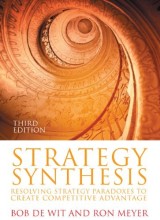Summary: 5.5 |Choosing A Research Strategy Or Strategies
- This + 400k other summaries
- A unique study and practice tool
- Never study anything twice again
- Get the grades you hope for
- 100% sure, 100% understanding
Read the summary and the most important questions on 5.5 |Choosing a research strategy or strategies
-
1 5.5 |Choosing a research strategy or strategies
This is a preview. There are 13 more flashcards available for chapter 1
Show more cards here -
Which types of qualitative strategies are there?
- Experiment-What, how and why
- Survey- What, who, where, how much, how many
- Archival research
- Case study- Why, what and how
- Ethnography
- Action research
- Grounded research
- Narrative inquiry
-
What is the purpose of an experience?
To study the propability of a change in an indepenten vriable causing a change in another dependent variable. -
Explain the null and alternative hypothesis...
The null predicts that ther will be not be a significant difference in the relationship difference or relationship between the variables. no greater then the usual standard of 0.05.
The alternative predicts there is a significal difference> 0.05. -
How many variables exist, name them.
6 in total.- Independent (IV)
- Dependent (DV)
- Mediating (MV)
- Moderator
- Control
- Confounding
-
Drawbacks of surveybased research?
Easily done badly and limited in comparison with other methods. -
Archival research, what is it?
research based on administrative documents and records refering to historical as recent documents. It allows research questions which focus upon the past and changes over time to be answered>exploratory, descriptive and explanatory. -
Drawbacks of archival research?
Data may be missing or you cant' acces it. Furthermore your questions will be contrained b y the nature of the documents and records. -
Which are Yins dimensions?
- Single case vs. multiple case
- Holistic vs. embedded case- refers to the unit of analyses
- Single case vs. multiple case
-
Explain mutiple case study and the type of replecation...
It incorporates multiple cases in which the rationale focuses on wether findings can be replicated across cases.- Literal replication- cases are chosen on the basis that similar results are predicted to be produced from each one. Where tis is realised, this terms this type.
- Theroretical replication- set of cases chosen where the contextual factor is deliberatly different. HTe ipact of this difference on the anticipated findings is predictedby the researcher> where this predicted variatoin is realised, this terms this type.
-
What is holistic, what embedded?
For example if you study the full organisition, all departments, then we speak of holistic research study, while using only a few departments, it is embedded.
- Higher grades + faster learning
- Never study anything twice
- 100% sure, 100% understanding
































